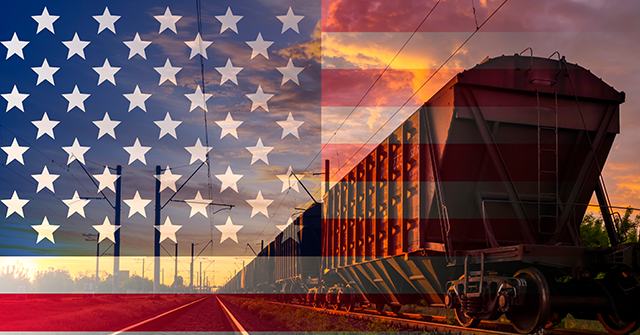America’s economy runs on chemistry. From the medicines we take to the cars we drive, chemistry powers our way of life. But none of it moves without freight rail. Rail isn’t just a logistical detail – it’s a lifeline. And right now, that lifeline is being threatened by a merger that will lead to a coast-to-coast rail monopoly.
The stakes are enormous. The United States is second to China in chemical production. We want to be number one. Better access to competitive and reliable freight rail is key to getting us there. If we can’t move American-made chemistry efficiently, we can’t reshore manufacturing, strengthen supply chains, or win the global race for industrial leadership.
Union Pacific and Norfolk Southern want to merge into a transcontinental rail giant. If approved, one company would control nearly half of all U.S. freight traffic and more than half of chemical shipments. That’s not competition – it’s a monopoly on steroids. And history tells us what happens next: service collapses, costs skyrocket, and American manufacturers pay the price.
We’ve seen this movie before. The Union Pacific–Southern Pacific merger in 1996 promised efficiency but delivered chaos—crippling supply chains and costing billions. More recently, the Canadian Pacific–Kansas City deal sent on-time performance plunging to 26 percent. Every time railroads consolidate, the result is the same: fewer choices, higher costs, and fragile supply chains.
Vice President JD Vance put it plainly at a recent Turning Point USA event:
“When you have one or two companies dominating an entire sector, it’s bad for liberty and it’s bad for prosperity.”
He’s right. That’s why every American should be alarmed about the prospect of a UP–NS rail monopoly and how it will drive up prices. Monopolies are bad for liberty and prosperity—and this one would be especially damaging to our economy.
This isn’t just about trains—it’s about freedom, fairness, and America’s ability to compete. A monopoly on the rails doesn’t just squeeze chemical producers; it ripples through every sector—farmers, energy suppliers, manufacturers, and ultimately, consumers.
It would also undermine President Trump’s America First agenda. U.S. manufacturers that rely on rail would face higher costs, less service, and fewer choices—while foreign competitors gain ground.
To make matters worse, the merger promises to make it easier to deliver intermodal container shipments, which are primarily imports from China and other countries. That means foreign producers get an edge, undercutting American-made products and threatening American jobs.
The Surface Transportation Board (STB) is the sole agency that gets to review this deal and it must hold the line. Under its own rules, the merger must enhance competition—not just preserve it. So far, nothing in this proposal suggests it will meet that standard or even why it’s needed. We’ve seen other railroads provide better service through partnerships without eliminating competition. If Union Pacific and Norfolk Southern can’t prove this deal creates more rail-to-rail competition, it must be rejected.
The top concern of Americans right now is the cost of living and inflation. A big deal like this is going to be inflationary and impact the number one issue for voters. Policymakers should listen to them and stop a deal that will create a monopoly that makes things more expensive.
America needs a better deal. One that strengthens supply chains, lowers costs, and puts U.S. producers first—not a merger that locks in monopoly power for decades.
While UP–NS would like to declare victory for its shareholders, this merger is no slam dunk. Democrats and Republicans from across the country, along with railroads, unions, farmers, energy producers, and manufacturers, are urging the Administration to hit the brakes.
The choice is simple: support American manufacturing dominance or repeat the mistakes of the past and surrender our future to railroad monopolies.
Breitbart News
Read the full article .


